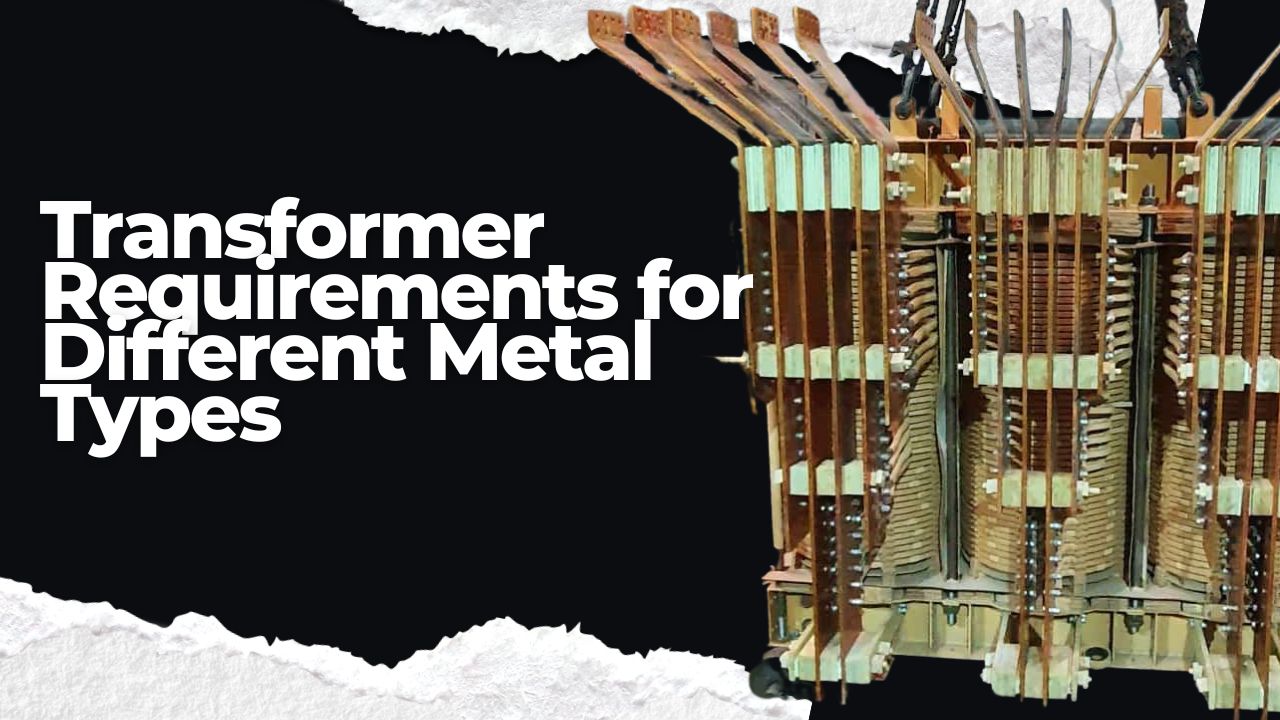

Every factory operator knows that sinking feeling when power issues disrupt a melt.
It starts small—maybe some unexplained temperature fluctuations or a slight increase in oxidation.
Then comes the telltale transformer hum that signals bigger problems ahead.
The root issue often traces back to mismatched equipment. Different metals need different power setups, and getting it wrong costs time and money.
Walk into any steel processing facility and you'll spot the transformers immediately; they're the massive units with industrial cooling towers attached.
Regular transformers just can't handle steel's power requirements. The heat alone causes major issues, cooking standard insulation and overwhelming typical cooling systems
Then there's the electromagnetic interference, strong enough to affect equipment three rooms away.
Getting steel processing right means investing in seriously overbuilt transformers with heavy-duty everything, from reinforced cores to industrial-grade cooling.
Aluminum processing calls for an entirely different approach. Stability matters more than raw power here.
The slightest voltage swing can trigger oxidation issues that ruin entire batches. Maintaining consistent temperature control through each melt cycle requires responsive power systems.
Traditional transformer setups fall short; they simply can't adjust quickly enough to aluminum's changing electrical demands.
Successful processing depends on specialized transformers with rapid load adjustment capabilities and tight voltage control.
Copper creates unique power delivery challenges. Its high conductivity means electromagnetic effects compound in unexpected ways throughout the melt cycle.
Temperature control becomes increasingly difficult as the melt progresses. Standard transformer cooling systems struggle to dissipate heat effectively during long processing runs.
Success requires specialized transformers designed specifically for copper's characteristics, with enhanced cooling systems, proper electromagnetic shielding, and continuous power monitoring throughout the melt cycle.
Processing zinc and lead might seem easier since they melt at lower temperatures, but these metals demand surprising precision.
Power fluctuations that wouldn't affect steel can ruin an entire batch. Standard industrial transformers lack the response speed needed for proper temperature control.
Effective processing requires specialized transformer designs that deliver precise power regulation.
Good temperature control isn't just about product quality; it directly affects energy efficiency and material waste.
Precious metal processing magnifies every transformer limitation. Small temperature variations that wouldn't matter for other metals can destroy thousands in product value.
The constant load changes from normal processing operations create ongoing power regulation challenges.
Standard industrial transformers lack the precision these applications demand.
Success requires specialized units with redundant monitoring systems and rapid-response protection circuits.
Even routine maintenance becomes critical—slight performance degradation quickly affects product quality.
Here at Makpower, metal processing challenges drive our transformer development. Direct experience with factory operations shapes our approach to power system design.
We've learned which features matter most for different metals through decades of hands-on work.
Need help matching transformer capabilities to your processing requirements? Our technical team understands the real-world challenges you're facing. Get in touch with us today.